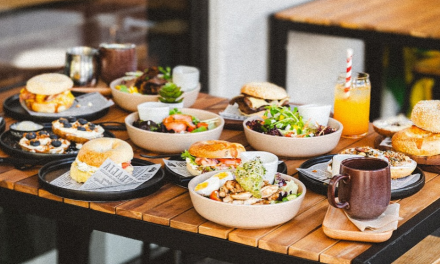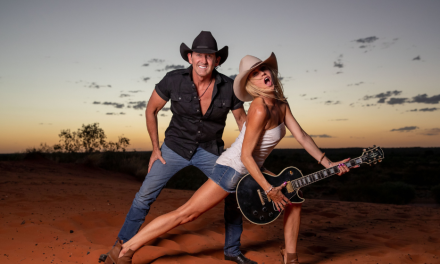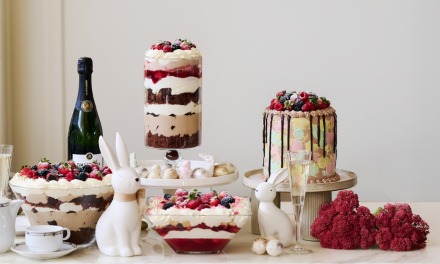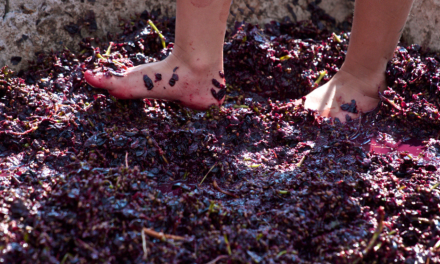For Aussie pop legend Rai Thistlethwayte, writing and playing music is a must. Born into a music filled household, Thistlethwayte was raised on jazz, rock, blues, and classical music. In 2002, Rai started the 5 x ARIA nominated, 3 x platinum Aussie pop rock band Thirsty Merc, which gave us hits like ’20 Good Reasons’, ‘Mousetrap Heart’, and ‘In The Summertime’. Now focusing on his solo music, Rai says it’s important to stay invigorated and enthusiastic as a writer, taking influence from a range of artists from jazz pianists, to spoken word ‘punk poets from the 70s’. With an impressive musical background and a huge catalogue of songs, his live shows see him play guitar, keyboard, loop pedals, and vocals – sometimes all at once.
You have such a strong background in jazz music as well as a huge range of other genres. Coming from Thirsty Merc which is so pop heavy, do you find that it’s been a lot easier for these influences to come out a lot more in your solo music?
With my solo stuff I’ve probably ventured into more keyboard based song writing, but I certainly go back to my roots a lot – classical, jazz, blues, soul, groove, and funk. I’ve always written a lot of stuff on piano, but from about 2012 I started really focusing on going back to those original genres that I’ve always loved. I’ve definitely found that it’s easy to imbue jazz and improvised elements into my solo stuff.
What artist have inspired your solo music and how do you draw inspiration from them?
I mean, right now I’m thinking of some people that do spoken word stuff. There’s a guy called John Cooper Clarke who is a crazy sort of ‘punk poet’ from the 70s and he used to open for bands with his poetry…his lyricism is almost wordplay. I love jazz vocalists that have that sort of croon going on like Kurt Elling and Frank Sinatra. In my opinion, Keith Jarrett the jazz pianist is one of the most amazing musicians to have ever lived so he’s a big influence on my piano playing.
I love Joni Mitchell, Prince, Meschell Ndegeocello, Mr bungle, Chris Cornell, Stevie Wonder, Donny Hathaway, and David Coverdale from Deep Purple – the list goes on.
I have a lot of respect for artists that can explore different genres and move through different styles. These people are unstoppably amazing.
You paint such detailed pictures with your lyrics, especially in songs like ‘San Francisco Street’. What does your writing process look like to create such amazing imagery?
I wrote ‘San Francisco Street’ with a guy called Jeff Trott. He’s been a writer on a lot of Sheryl Crow’s big songs, so he’s an amazing musician and a great lyricist. Jeff grew up in the Bay area and had a lot of memories of San Francisco. I’d spent more time in Los Angeles, so going to San Francisco was more of a dream for me. One day, we were sitting at a piano and I just started coming up with some melodies while he strummed guitar chords. We wrote the lyrics about this dream idea of waking up in San Francisco.
How would you say your writing style has developed over the years?
I think we all need to reinvigorated creativity and go through different reinventions of ourselves. It’s good to get excited about something that you touched on when you were a lot younger and then flesh it out more. In Thirsty Merc, I wrote a lot of stuff which was lyrically earnest, honest, direct, and conversational.
But then, there was a time in the late noughties when I was going for a more abstract, art house type of lyricism. A lot of lyrics had very strange juxtapositions and I went a lot further with it. I did an album called ‘I Can See Oxygen’, which is a really strange spoken word album. It’s self-deprecating and morbid.
Then, I moved on to groove albums which are more keyboard driven, atmospheric stuff inspired by a California West Coast idea – chilled out, faded beach, 70s sun sound. In 2015, I went back to my roots. I looked at songs that I hadn’t finished for many years and brushed off unfinished lyrics.
There’s something about the naivety of being young and writing what’s really true to you, when you haven’t had that much life experience. Now, I have a different relationship with myself and other people around me. I write about a more multi-dimensional versions of what relationships are, what love is, how I see myself on the Earth, and how it all fits together in a sort of jigsaw puzzle.
My writing has just evolved with the way that I’ve grown up. There’s always a lot of room to keep going and hopefully I can keep writing even as I get a lot older. I don’t want anything to ever beat that enthusiasm out of me.
How was your creative process or productivity effected during this year’s lockdown, especially considering you usually split your time between Sydney and LA?
Every musician I know has been affected massively… some more than others. I think all musicians and audiences started realizing that live streamed concerts just aren’t as tangible and palpable. Watching something on a screen just isn’t going to give you that real feeling. Lockdown affected my outlook on the world and I sort of got pretty dark there for a few months. I’m coming out of it now because the gigs are starting to happen. It’s been been an absolute curveball of a year and I think everyone’s been affected in some sort of way.
Do you think we’ll see any lasting changes to the music industry after the challenges of Covid-19?
It’s been one of those catalytic things that moves and shakes in the industry and I think that it’s sort of forced certain technological things to advance really fast. In terms of live music, I think we might see a more local shows happening. ‘Splendour In The Grass’, for instance is all local artists this year, which is really cool. Thirsty Merc is gearing up to record some new songs and we’re looking to do a bunch of three piece shows in a much smaller format, downsizing certain elements. I think, inevitably, there’s going to be changes to the way we all travel and work.
Your new EP ‘Pocket Music II’ came out this October – congratulations! What can fans expect to see from these new songs in your live shows?
I play a few songs where I sing almost karaoke style with a backing track, but sometimes I play more of a broken down version with bass and loops, with a lot more improvising. Hopefully I’m just able to interpret the songs authentically. In my live shows I do a selection from the whole catalogue – new and old songs. I just try to showcase who I am as a songwriter.
What can we expect from you in terms of upcoming live shows and new music?
Definitely more exploration with my solo stuff. I’ve got some Thirsty Merc stuff in the works which is going to be a tribute to Aussie artists. In my live shows I’ll be playing some unreleased songs… I guess I could be cheeky and say, you’ve got to come down to a gig to hear it. I just write stuff in my life and when I find there’s a thread that creatively works I fit them all together.
As they say, art imitates life – if you don’t have experiences in life to draw from then you’re not going to be able to create. I just try and live my life and write music, and things seem to fit together.






